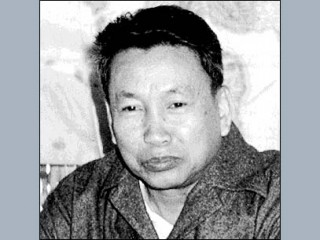
Pol Pot biography
Date of birth : 1928-05-19
Date of death : 1998-04-15
Birthplace : Kompong Thom province, Cambodia
Nationality : Cambodian
Category : Politics
Last modified : 2010-05-25
Credited as : Communist leader, Khmer Rouge,
Pol Pot became leader of Cambodia in mid-1975. During his time in power, Pol Pot imposed a version of agrarian collectivization, forcing city dwellers to relocate to the countryside to work in collective farms and forced labor projects, toward a goal of "restarting civilization" in a "Year Zero". The combined effects of slave labor, malnutrition, poor medical care, and executions resulted in the deaths of approximately 21% of the Cambodian population.
Known for brutality and the murdering of millions of people in Cambodia, Pol Pot became an international criminal when he took government as head of the Khmer Rouge. While he was never brought to trial for the charges against him during his rule, he and his followers took the country into the deepest pits of despair.
As a child, the young Saloth Sar, as Pol Pot was originally named, lived well off of his father, who was a wealthy land owner more than he was a farmer. Pol Pot in Cambodian literally means Politique Potentielle, in French, or Potential Politics – a form of extreme communism in which Pot religiously believed and changed his name to match. Pol, his brother, sister, and a cousin were favored be the Kingdom Monivong, which entitled them to some privileges not bestowed upon other Cambodian families. While living in the royal palace for a time, he witnessed what feudalistic power was dealt. During this time, Pol Pot attended various French language schools, but was either not bright enough or simply did not try to pass his classes. When he failed at earning his diploma and later becoming a monk, his family sent him to France to study, where he also failed academically. Politics struck his fancy and he joined the French Communist Party in the early 1950s. Following, he gained some military know-how in Yugoslavia before returning to Cambodia.
By the early 1960s, Pol Pot began teaching in a private school in Phnom Penh and began a leadership role in Cambodia’s Communist Party. When he visited China, he saw how the Cultural Revolution controlled and affected the entire country. With support from the Communist government there, he went back to Cambodia and with an ignited fervor to bring Cambodia to utopian standards – a naïve ideology that became his obsession.
In the Cambodian coup of 1970, which was in support of American involvement in the country, the Khmer Rouge (or Cambodian Communists) began attacking the Cambodian army. When the U.S. began bombing other parts of the country, Cambodia began distrusting their supposed American allies. The Khmer Rouge’s popularity grew rapidly and before anyone could realize it, Pol Pot and his army had taken the capital. Pol Pot became the country’s decisive ruler, and thereafter began the torturing, murdering, and near genocide of his own people. By sending inhabitants of the city into forced labor camps, or communes, disease, starvation, and death became the norm. The country’s economy plummeted and the society became depressed and repressed. Pol Pot and the Khmer Rouge were overthrown by Vietnam, but even through the 1990s, Pol Pot wreaked havoc on Cambodia. He died by suicide, murder, or heart failure in 1998 before he could be brought to trial.
Despite government requests to inspect the body, it was cremated a few days later at Anlong Veng in the Khmer Rouge zone, raising strong suspicions that he committed suicide or was poisoned.
















